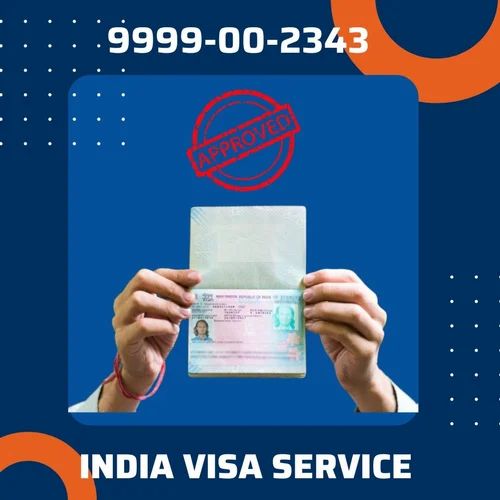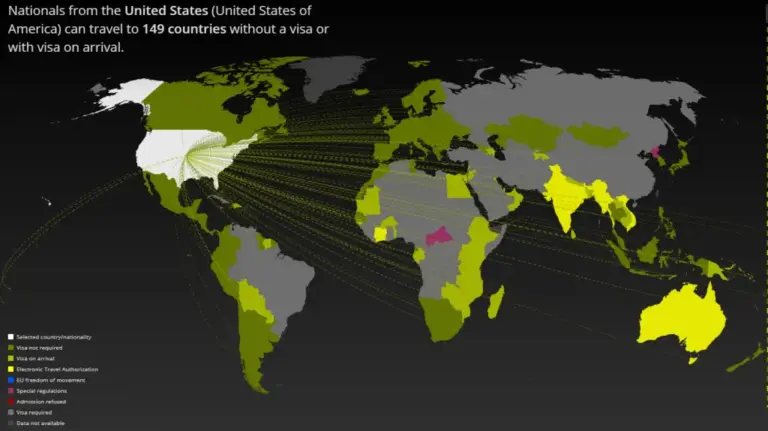Breaking It Down: Indian Exit Visa Explained for Tourists

Understanding Indian Exit Permits
Purpose of Exit Permits
Exit permits in India serve as crucial documentation for foreign nationals who need to leave the country under specific circumstances. The primary purpose of an exit permit is to ensure that individuals comply with immigration laws and avoid any legal complications that might arise from overstaying their visa or changing their visa type while in India.
Exit permits are particularly relevant for:
- Visa Expiry or Overstay: If your visa has expired or you have overstayed your visa duration, you need an exit permit to leave the country legally without incurring penalties or facing deportation. (Expatria Blog)
- Changing Visa Types: If you need to switch from a tourist visa to another type of visa, such as an employment visa, you must obtain an exit permit before you depart India. (Expatria Blog)
Failing to secure an exit permit when required can lead to significant consequences, including fines, visa bans, or difficulties in obtaining future visas (Expatria Blog).
Importance of Exit Permits for Foreign Nationals
For foreign nationals, understanding and obtaining an exit permit is essential for several reasons:
- Legal Compliance: Exit permits ensure you comply with Indian immigration laws, reducing the risk of legal actions such as fines or deportation.
- Smooth Departure: Having the necessary documentation facilitates a hassle-free departure from India, ensuring that you can leave without delays.
- Avoiding Penalties: Without an exit permit, you might face financial penalties or bans from re-entering India, affecting your future travel plans. (Expatria Blog)
- Changing Visa Status: If you are altering your visa type, an exit permit is often a prerequisite for the application process, ensuring all transitions are legally recognized.
To apply for an exit permit, you will need to provide detailed information including personal details, passport details, visa details, your stay address in India, purpose of visit, and reason for delay in departure, along with various documents and payment details (India E-Visa). Comprehensive information on the Indian visa application process and Indian visa requirements will further assist you in this process.
Understanding the purpose and importance of exit permits is paramount for foreign nationals looking to navigate their stay in India smoothly. For more details on different visa types, you can explore resources on types of Indian visas and guidelines on Indian tourist visas.
Exit Permit Application Process
Step-by-Step Guide to Obtaining an Exit Permit
To leave India after your visa has expired or if you require an exit visa for other reasons, you need to apply for an exit permit. This process can be done online and is generally straightforward if you follow the steps below:
- Visit the FRRO/FRO Online Portal: Go to the FRRO/FRO online website or download the mobile app.
- Complete the Application Form: Provide your personal details, passport information, visa details, stay address in India, purpose of visit, expected stay duration, reason for delay in departure, and other relevant data.
- Upload Required Documents: Ensure you have digital copies of all necessary documents to upload (see the section on required documents).
- Pay the Application Fee: Fees depend on your country and type of visa, payable by credit or debit card.
- Submit the Application: Submit your completed form and wait for confirmation of receipt.
- Wait for Processing: The permit will generally be processed within 7-10 days, assuming you have submitted all required documents and information (India E-Visa). You may be contacted via email for additional documentation or information.
Required Documents for Exit Permit Application
When applying for an exit permit, you need to provide several documents to verify your identity, travel history, and reason for overstaying. Below is a list of the essential documents:
| Document Type | Details |
|---|---|
| Passport | Valid passport with a copy of the main information page and any pages with Indian visa stamps. |
| Visa | Copy of the expired visa or the visa that requires an exit permit. |
| FRRO/FRO Registration | Proof of registration if applicable. |
| Proof of Residence in India | Address proof, such as a rental agreement or utility bill. |
| Travel itinerary | Details of your travel plans, including flight tickets for departure. |
| Additional Documents | Any documents specific to your reason for overstaying (medical certificates, police reports, etc.). |
Remember to apply accurate and truthful information in your application to avoid the risk of rejection. For further details on required documents for visa applications, you can visit Indian visa documents checklist.
Following this guide will help you smoothly navigate the process of obtaining an exit permit, ensuring that you can leave the country legally and without unnecessary delays. If you need more information regarding Indian visa requirements, please refer to the relevant sections on our website.
Exit Permit in India vs. Other Countries
When traveling internationally, understanding the exit permit requirements of your destination is crucial. This section will help compare Indian exit permits with those required in other countries, providing you with a comprehensive overview.
Comparison of Exit Permit Requirements
Exit permits are official documents that allow you to leave a country legally. India has specific regulations regarding exit permits, especially for those who have overstayed their visa or lost their passport. Here’s a comparison with similar requirements in other countries:
| Country | Exit Permit Required | Common Scenarios |
|---|---|---|
| India | Yes | Overstaying visa, lost passport (US Department of State – India) |
| Russia | Yes | Overstaying visa, visa violation (Investopedia) |
| China | Yes | Overstaying visa, visa violation (Investopedia) |
| Saudi Arabia | Yes | Expatriate workers (specific conditions) |
| UAE | No | Generally not required for tourists, specific conditions may apply |
| Thailand | No | Generally not required for tourists, specific conditions may apply |
In India, if you overstay your visa or lose your passport, you need to obtain an exit visa stamp in your replacement passport via the U.S. Embassy/Consulate. This exit visa allows a specified period for you to legally exit India (Immihelp). Similarly, countries like Russia and China also have stringent exit permit laws for visa violations.
Countries Requiring Exit Permits for US Citizens
For U.S. citizens, several countries have exit permit requirements under specific circumstances, while others do not:
| Country | Exit Permit Required for US Citizens | Scenarios |
|---|---|---|
| India | Yes | Lost passport, overstayed visa |
| Iran | Yes | Specific conditions |
| North Korea | Yes | Upon departure from the country |
| Russia | Yes | Overstaying visa, visa violations |
| China | Yes | Overstaying visa, visa violations |
| Saudi Arabia | Yes | Specific conditions for expatriates |
| UAE | No | Generally not required |
| Thailand | No | Generally not required |
If you overstay your visa in India or violate Indian visa rules, you may need clearance from the Ministry of Home Affairs to exit the country. Legal consequences for overstay can include fines, visa bans, or even detention, necessitating an exit permit (Expatria Blog).
For more on how to manage your visa requirements and avoid scenarios requiring an exit permit, explore guides such as indian tourist visa and indian visa extension rules. Always ensure that you understand the specific exit requirements of any country you visit to avoid complications during your travels.
Overstaying Visas and Exit Permits
Consequences of Overstaying Visas
Overstaying your visa in India can lead to serious consequences. According to the Expatria Blog, you may need an exit permit to leave the country legally if you have overstayed. Failing to obtain this can result in fines, visa bans, or even deportation.
| Visa Overstay Duration | Potential Consequences |
|---|---|
| 1 – 15 days | Fines ranging from ₹2,000 to ₹10,000 |
| 16 – 30 days | Fines and possible temporary travel ban |
| 31+ days | Fines, visa ban, possible deportation |
Additional penalties might be imposed in more severe cases. In some extreme situations, individuals could face imprisonment (Investopedia). Those who overstay may also be required to stay in the country until an exit permit is issued, which could take anywhere from three to 20 business days.
Obtaining an Exit Permit After Visa Expiry
If you find yourself in a situation where your visa has expired, obtaining an exit permit is crucial to avoid these legal consequences. The first step is to apply for the exit permit through the Ministry of Home Affairs. The permit serves as official approval to leave the country without penalties.
- Documents Required:
- Original passport
- Copy of expired visa
- Application form for the exit permit
- Reason for overstaying
- Recent passport-sized photographs
- Copy of flight ticket
For U.S. citizens, the situation might require additional clearance from the Ministry. According to the US Department of State – India, authorities can fine and even detain individuals who overstay their visas, with visa violators requiring an exit permit. This process can take up to 90 days and is assessed on a case-by-case basis.
To learn more about the visa process and avoid such scenarios, refer to the Indian visa documents checklist and the Indian visa requirements. For those looking to apply for an extension before the visa expires, understanding Indian visa extension rules is also crucial.
By adhering to these guidelines, you can navigate the complexities of the Indian exit visa process and ensure a smooth departure from the country.
Exit Permits for Special Cases
When it comes to securing an Indian exit visa, it’s crucial to be aware of special cases that may require additional permits. These include situations involving Emigration Check Required (ECR) category Indian citizens and visa rule violators.
Exit Permits for ECR Category Indian Citizens
Indian citizens under the Emigration Check Required (ECR) category must obtain an exit permit when traveling to specific countries, notably in the Middle East and Southeast Asia. This permit serves as an Emigration Clearance Certificate (ECR stamp) on their passport, which they must obtain from the Protector of Emigrants (PoE) office. This clearance ensures that they are legally permitted to work or travel abroad (Expatria Blog).
| ECR Region | ECR Necessary | Notable Countries |
|---|---|---|
| Middle East | Yes | UAE, Saudi Arabia, Kuwait |
| Southeast Asia | Yes | Malaysia, Indonesia |
More details can be found in our section on Indian visa for US citizens, which also discusses varied visa requirements.
Exit Permits for Visa Rule Violators
If you are a foreign national who has overstayed your visa in India or have other visa violations, you will require an exit permit before you can leave the country. Overstaying your visa can result in severe penalties, including fines, future visa bans, or even deportation. The exit permit helps you depart legally and attempt to mitigate some of these consequences. This step is essential for avoiding further legal complications.
Common visa violations that may necessitate an exit permit:
| Violation Type | Legal Consequence |
|---|---|
| Overstaying Visa | Fines, Deportation |
| Incorrect Visa Type | Exit Permit Required |
For additional insights on visa regulations and legal aspects, check out our guide on Indian visa extension rules.
In both scenarios, acquiring an exit permit is a vital step before leaving India. Failure to secure the necessary permit can result in fines, legal consequences, and difficulties in obtaining future visas or entry into India. For further guidance, make sure to consult our resources on Indian visa requirements, and always ensure you comply with the latest regulations.
Key Considerations for Exit Permits
Understanding the legal aspects and risks associated with not obtaining an Indian exit visa is crucial for any tourist or traveler. These considerations ensure compliance with Indian immigration laws and help avoid potential complications.
Legal Aspects of Exit Permits
Exit permits play a significant role in the legal framework of Indian immigration regulations. These permits are required in specific situations such as visa overstay, visa conversion, legal issues, or immigration violations. The absence of an adequate exit permit in these circumstances could lead to severe repercussions. According to the Expatria Blog, failing to secure an exit permit can result in fines, legal consequences, and complications in securing future visas or re-entry into India.
Moreover, particular categories like the Emigration Check Required (ECR) apply to Indian passport holders traveling for employment to certain specified countries. These individuals must obtain an Emigration Clearance Certificate (ECR stamp) from the Protector of Emigrants office, which acts as an exit permit (Expatria Blog). It’s advised to be aware of the Indian visa requirements and indian visa documents checklist to avoid legal hurdles.
Risks of Not Obtaining an Exit Permit
The risks of not obtaining an exit permit when required can be numerous and long-lasting, impacting future travel plans and legal standing. Here are some critical risks:
- Fines and Penalties: Failure to secure an exit permit could result in hefty fines. These are monetary penalties imposed by Indian immigration authorities for non-compliance.
- Legal Consequences: There could be legal repercussions, including detention or restrictions on travel, as a consequence of violating immigration norms.
- Future Visa Complications: Non-compliance can hinder your chances of obtaining future visas for India, including indian tourist visa, indian business visa, or indian medical visa.
- Difficulty in Re-entry: Not having an appropriate exit permit may result in difficulties if you plan to re-enter India. This can be particularly cumbersome for those who frequently travel to India for business or personal reasons.
| Risk Type | Possible Consequence |
|---|---|
| Fines and Penalties | Hefty monetary fines |
| Legal Consequences | Detention, travel restrictions |
| Future Visa Complications | Difficulty obtaining Indian visas |
| Difficulty in Re-entry | Restricted re-entry into India |
For more details and guidance, consider reviewing related articles about applying for Indian visa online, Indian visa fees, and Indian entry visa. Always ensure you have the correct exit permits to avoid significant risks and penalties.






